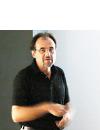Prof. Alain Dereux
Professor of Physics
at Lab Interdisciplinaire Carnot de Bourgogne
|

|
|
|
|
Contact Details:
|
Sign In to send a private message or view contact details
|
|
Prof. Alain Dereux, Belgian physicist born in 1963, PhD (1991) from the University of Namur (Belgium). In 1992, A. Dereux was post-doc researcher at the IBM Zurich Research Laboratory (Rüschlikon, Switzerland). In 1995, he was appointed Professor of Physics at the University of Burgundy (Dijon, France) where he later promoted to Distinguished Full Professor. His research activities, covering surface plasmon photonics (plasmonics), near-field optics and nanophotonics, aim at controlling optical processes at the sub-wavelength scale in order to push applications in biology and in opto-electronics. Since 2004, they are integrated in successive European projects (FP6 NoE Plasmo-Nano-Devices, FP6 STREP PLASMOCOM, FP7 STREP PLATON, FP7 STREP SPEDOC) . In 2007, he chaired the "Third International Conference on Surface Plasmon Photonics (SPP3)" organised in Dijon. Since 2012, he is director of the "Laboratoire Interdisciplinaire Carnot de Bourgogne (ICB)" (> 250 personnels) jointly operated by French CNRS & University of Burgundy, Co-author of more than 150 publications (above 6700 citations, H-index = 35 by Dec 2011), A. Dereux has given more than 80 talks as conferences or invited seminars.
Upcoming Presentations
Most Recent |
Show All
|
Retrieving Data, please wait...
Publications
Most Recent |
Show All
|
Retrieving Data, please wait...
Conference Committee Involvement
Most Recent |
Show All
|
Retrieving Data, please wait...
Course Instructor
Most Recent |
Show All
|
Retrieving Data, please wait...
|

